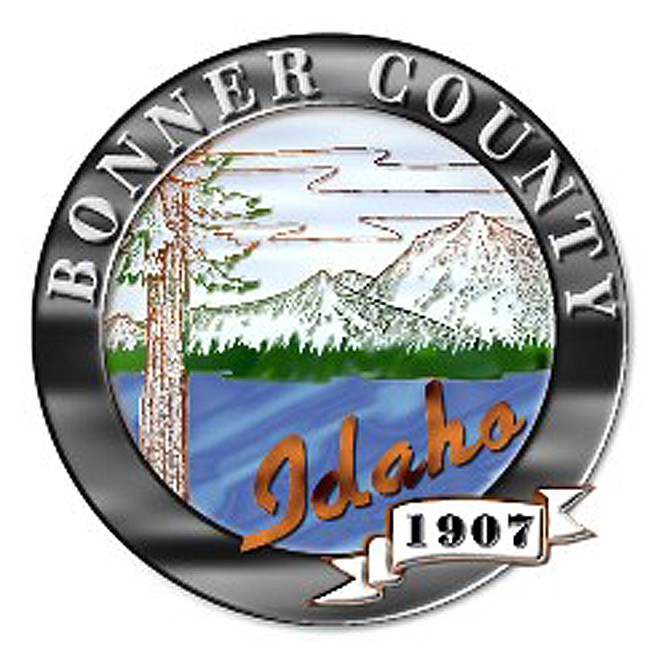Federal money. State plan. County approval?
▶️ Listen to this article now.
SANDPOINT — Bonner County commissioners are wary of a new broadband development project that the state is asking them to approve, causing them to begin the process of drawing up an additional contract that needs to be signed by the internet service provider before proceeding.
The Idaho Department of Commerce is asking commissioners to approve a $1.53 million broadband infrastructure project with Ziply Fiber to improve middle mile broadband service in the Spring Creek and Blanchard areas.
Middle mile broadband does not directly involve the end consumer, but provides the infrastructure that allows connectivity to be possible for individuals. Such service is expensive to build, but is cost effective when compared to incumbent service providers who are already established.
The project was made between Northwest Fiber, doing business as Ziply Fiber, and the Idaho Department of Commerce. It is going to be funded with the Coronavirus Aid, Relief, and Economic Security Act money that was granted to the state from the federal government in response to the COVID-19 pandemic.
Even though the broadband contract is between the state of Idaho and the privately owned Ziply Fiber, the state asked commissioners to approve the contract that will build infrastructure in the county. But commissioners are wary of the proposition.
“This is not our program,” said Commissioner Dan McDonald. “This is a program coming out of the state with CARES act money and we’re just a vehicle it has to pass through.”
Bonner County isn’t the only county that will be receiving the infrastructure improvements, but it will receive the largest percentage of money from the project.
“It does come with strings,” said Deputy Prosecutor Scott Bauer. “Essentially it’s for providing for more broadband infrastructure in rural areas that don’t have significant broadband access for covid purposes.”
COVID purposes include telehealth, tele-education, and telecommuting.
The major caveat to the project — it may not be legal, according to research done by Bauer.
“This is a very unusual program and right now, everybody is in “spend spend spend” mode. But once that subsides, the regulators will come in and monitor the money to make sure every penny is being spent correctly,” said Bauer, “the state has been shifting the responsibility for spending that money to and through the local governments.”
If CARES dollars are decided to not be acceptable for broadband expansion, the county taxpayers would be on the hook for paying for the project when audits on the covid stimulus are conducted at some point in the future.
“Essentially we are taking federal money and we’re basically passing it through Bonner,” said Bauer during the commissioners meeting., “We’re never actually acquiring anything and we’re never actually acquiring any title to this infrastructure. That’s extremely unusual.”
Typically, the county acquires a title, good, or service from projects that they fund.
“Here, we are just a passthrough. And what the state’s having us do is basically the state’s program,” Bauer said, “Our commissioners are put in a difficult position because if they say no based on what may be legal technicalities, then they’re turning away money that everyone else is accepting.”
Because of this, county commissioners were reluctant to approve the project.
In response, commissioners are drawing up a contract between the county and the internet service provider that would be more restrictive than the already existing contract between Ziply Fiber and the state.
“We’re gonna have our own agreement that the ISPs have to live up to that is far more restrictive outside of what the state’s saying we can do,” said Commissioner McDonald.
The contract will be completed in the next 1-2 weeks, then it will be up to Ziply Fiber if they are willing to proceed with the project. If they do, county taxpayers will be shielded from the responsibility for paying for the infrastructure project if it’s found that CARES money is not supposed to be spent on infrastructure, officials said.
“We felt that [the state of Idaho] was completely misinterpreting the CARES act in favor of ‘spend spend spend.’ But they reserve the right to change their mind at any time. And we’re at their whim,” said Bauer during public comment in response to questions from the forum.
The commissioners approved moving the action item forward, by split decision, on Tuesday. However, Commissioner Steven Bradshaw did not believe there was enough transparency in the proposition.
“I believe there’s still some question as to the legality, and there’s some dark areas in this,” he said. “I’m gonna make a motion to deny.”
McDonald entertained a motion to approve the project, and stepped down as chairman to vote to move the project along to the next step in litigation.
“Trust me, if we can’t clarify some of this stuff, I wont be supporting it. And I don’t think Dan will either,” said Commissioner Jeff Connolly after the vote.
Even if the commissioners move to not approve the project, it’s possible that the state could award the money to Ziply Fiber regardless.
“Keep in mind, we’re just a passthrough,” said McDonald. “We believe that Commerce can directly award these grants. But they want to go through the local entity, which is us, and that’s what we have a little heartburn over. Which is why we are going to draft our own contract with the ISPs to make sure that we're all covered.”
Bonner County commissioners meet every Tuesday at 9 a.m. in the Bonner County Administration Building at 1500 U.S. 2. If you are unable to attend, the meetings are live streamed through the Bonner County Planning’s YouTube channel.

